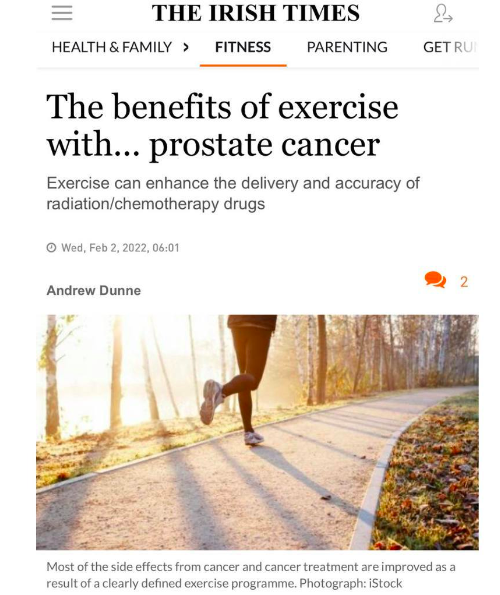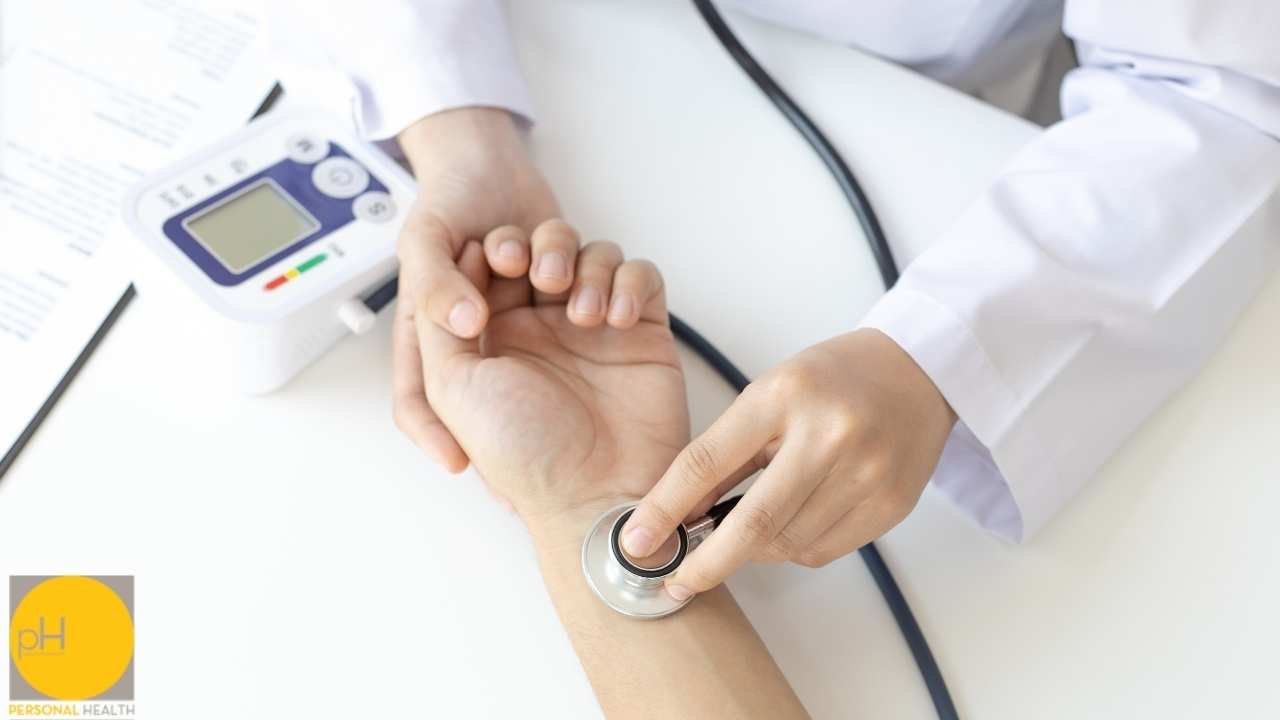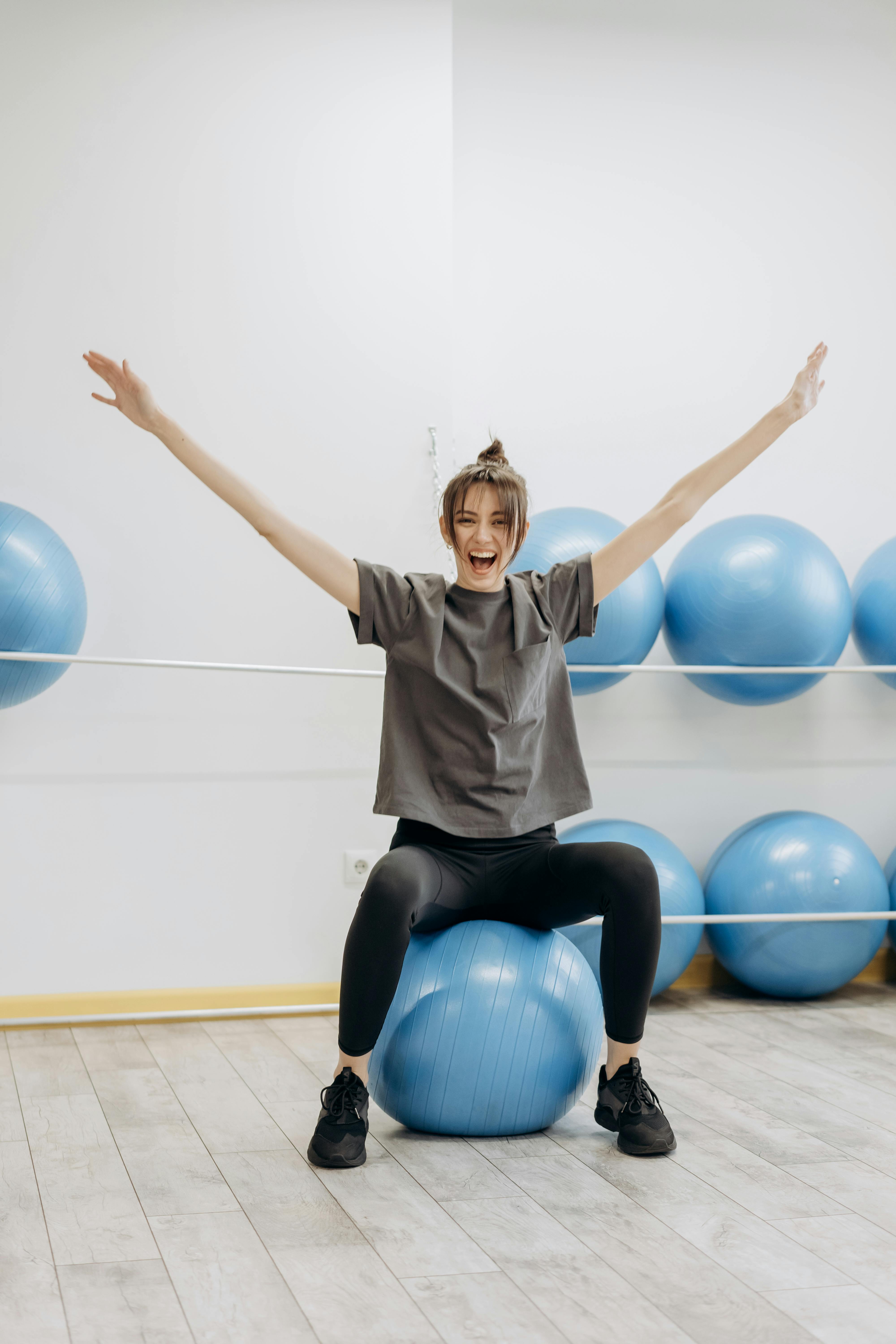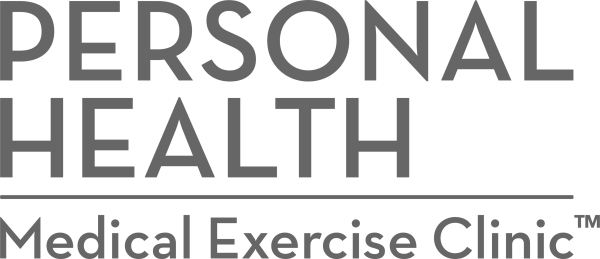Can Tom exercise during his radiation and chemotherapy treatment for prostate cancer?
Tom is 63 and was recently diagnosed with prostate cancer. He was shocked by the diagnosis initially. He took a couple of days to figure out his own reaction, as he felt a flood of different emotions. But when his GP told him that over 90% of men survive prostate cancer, he got a big boost and became determined to fight the diagnosis as best he can. He was given a very clear plan by his medical oncology (cancer) team, including a 30 day cycle of radiation therapy (over a 6 week period from Monday to Friday), a cycle of chemotherapy after this, and he is considering hormone replacement therapy as advised by his Urologist. He is a regular walker and golfer, but he has not been given any specific advice about exercise other than to keep doing what he is already doing. He is unsure/fearful how he will respond to the cancer treatment. While he is reassured that the medical plan is thorough and comprehensive, he feels that maybe he should rest up and build energy reserves to help manage the weeks ahead.
A specific exercise prescription will enhance the delivery and accuracy of the drug treatment
It is entirely understandable that Tom is contemplating a sabbatical from regular walking and golf. However it is entirely the wrong strategy! Most of the side effects from cancer and cancer treatment are improved as a result of a clearly defined exercise programme. Fatigue, nausea, pain, loss of lean muscle, ‘brain fog’, compromised bone density, urinary leakage or incontinence, peripheral neuropathy (tingling/loss of sensation in the feet), cardio or pulmonary toxicity and many more issues can be reduced in severity by adherence to an exercise plan during cancer treatment. But one of the most startling benefits of exercise adherence during cancer treatment is the fact it can enhance the delivery and accuracy of the radiation/chemotherapy drugs being used. Cancer/tumour cells thrive in an environment where there is poor oxygen uptake. If a cancer patient can manage to perform aerobic exercise to a moderate/vigorous level (sweaty, breathless but able to speak) immediately prior to treatment, it has been proven that the delivery and accuracy of these drugs is enhanced. In short, the tumour cells do not thrive in an oxygen rich environment, and Tom’s exercise regime is assisting in the accuracy and the delivery of the drugs. Amazingly…..Tom could really feel part of the fight now and take back some control over the diagnosis, a real mood enhancer!
Tom’s body composition is changing right now, so how can exercise help?
There are a number of things already changing in Tom’s body regardless of his cancer diagnosis. On average, a healthy male in his sixties will lose approximately 5-8% of lean muscle mass in this decade. There is also a likely increase in blood pressure as he ages, and a gradual decline in bone density. However with the upcoming cancer treatment plan there is a significant chance that these issues will be accelerated. While the drugs are vital to combat the cancer, some of the unfortunate side effects can cause a change in physicality and energy levels. Tom needs to commence a strength training programme for major muscle groups in order to maintain his current level of skeletal muscle. He can also stengthen some of the small, deep sphincter muscles in order to reduce urinary leakage, with specific and guided exercises. If his joint health permits, he should also introduce some high impact exercises (like skipping) to maintain bone density, which can rapidly decline in radiation/chemotherapy patients. Finally, if Tom chooses to go on hormone replacement therapy (as advised by his Urologist) then he is going to have great difficulty maintaining his lean muscle mass without a strength training plan. Overall, it will greatly enhance Tom’s medical treatment, energy levels, wellbeing and overall vitality if he exercises during his cancer journey.
You can book an exercise session with us on our website here or call 01 496 4002.





